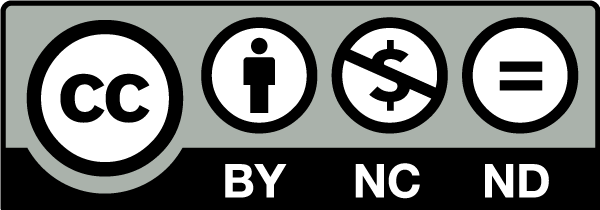Accessible Tourism Discourse and the Pandemic: Linguistic Resilience and Communicative Strategies in the Promotion of ‘Tourism for All’
DOI:
https://doi.org/10.13136/2281-4582/2021.i18.1044Keywords:
Accessible tourism discourse, Covid-19 recovery, inclusionAbstract
Since its outbreak in Asia in 2019, the SARS-CoV-2 pandemic has represented an unprecedented challenge for the tourism sector. In addition to the income losses due to travel restrictions and constantly-changing public health protocols, the uncertainty related to the rapid and increasing evolution of the pandemic has inevitably forced tourism operators to rethink how their work is organised and develop new approaches and procedures for planning and promoting their activities. In this scenario, tourists with disabilities have been hit even harder by the SARS-CoV-2 pandemic, since they have generally been excluded from the main communication channels during the pandemic (UNWTO 2020c). However, more inclusive and accessible approaches by tourism operators could become a profitable opportunity to reboot their activities and overcome the critical effects of the Covid-19 pandemic in a contemporary and future perspective.
This study will focus on how tourism discourse is tackling the challenges of the pandemic in the promotion of accessible holidays and Covid-19 related information. By means of discourse analysis and corpus-based methodologies, we will take into consideration the main linguistic and pragmatic features characterising a corpus of promotional web resources employed by public and private operators working in the field of accessible tourism. The research aims to identify and highlight the most effective communicative strategies employed in this sector during the pandemic, in order to understand how language may potentially contribute to a more resilient response to the current tourism crisis. Results will show that verbal and non-verbal resources are the main tools strategically co-employed by accessible tourism operators to instil new trust in the sector, to comply with constantly-changing national and international public health advice and government rules and, at the same time, to ensure safety and social inclusion to visitors and travellers with disabilities.
References
Bowtell, James. “Assessing the Value and Market Attractiveness of the Accessible Tourism Industry in Europe: A Focus on Major Travel and Leisure Companies.” Journal of Tourism Futures 1.3 (2015): 203-222.
Brielle, Gillovic, et al. “Enabling the Language of Accessible Tourism.” Journal of Sustainable Tourism 26.4 (2018): 615-630.
Buhalis, Dimitrios, Simon Darcy and Ivor Ambrose. Best Practice in Accessible Tourism: Inclusion, Disability, Ageing Population and Tourism. Clevedon: Channel View, 2012.
Casais, Beatriz and Celine Castro. “Online Communication of Accessibility Conditions in Touristic Spots: The Design–Communication Gap in Porto Destination.” Journal of Hospitality and Tourism Technology 12.2 (2021): 196-209.
Center for Universal Design. Principles of Universal Design. 1996. https://projects.ncsu.edu/ncsu/design/cud/. All websites last visited on 25/06/2021.
Coopman, Stephanie J. “Communicating Disability: Metaphors of Oppression, Metaphors of Empowerment.” Annals of the International Communication Association 27.1 (2003): 337-394.
Cruces Portales, Rafael. “Removing Invisible Barriers: Opening Paths Towards the Future of Accessible Tourism.” Journal of Tourism Futures 1.3 (2015): 269-84.
Dann, Graham. “Targeting Seniors through the Language of Tourism.” Journal of Hospitality & Leisure Marketing 8.3-4 (2001): 5-35.
Darcy, Simon and Tracey J. Dickson. “A Whole-of-life Approach to Tourism: The Case for Accessible Tourism Experiences.” Journal of Hospitality and Tourism Management 16.1 (2009): 32-44.
Darcy, Simon, Bruce Cameron and Shane Pegg. “Accessible Tourism and Sustainability: A Discussion and Case Study.” Journal of Sustainable Tourism 18.4 (2010): 515-537.
Dirección de Accesibilidad Universal de la Fundación ONCE. Observatory on Universal Accessibility in Tourism in Spain 2016. Madrid: Fundación ONCE/Vía Libre, 2017.
Enable Holidays. https://www.enableholidays.com.
European Commission (EC). Mapping and Performance Check of the Supply of Accessible Tourism Services – Final report. Luxembourg: Publications Office of the European Union, 2015.
European Travel Commission (ETC). COVID-19 Recovery Strategies for National Tourism Organization. Brussels: ETC, 2020.
Fairclough, Norman and Ruth Wodak. “Critical Discourse Analysis.” Discourse as Social Interaction. Discourse Studies: A Multidisciplinary Introduction. Volume 2. Edited by Theo A. van Dijk. London: Sage, 1997. 258-284.
Fairclough, Norman. “Critical Discourse Analysis.” The Routledge Handbook of Discourse Analysis. Edited by James Paul Gee and Michael Handford. London: Routledge, 2012. 9-20.
Fernandes, Nuno. “Economic Effects of Coronavirus Outbreak (COVID-19) on the World Economy.” IESE Business School Working Paper No. WP-1240-E. 2020.
Field Museum. https://www.fieldmuseum.org/.
Goodwin, Donna, Robin Thurmeier and Paul Gustafson. “Reactions to the Metaphors of Disability: The Mediating Effects of Physical Activity.” Adapted Physical Activity Quarterly 21.4 (2004): 379-398.
Iwarsson, Susanne and Agneta Ståhl. “Accessibility, Usability and Universal Design-Positioning and Definition of Concepts Describing Person-Environment Relationships.” Disability and Rehabilitation 25.2 (2003): 57-66.
Kress Gunther and Theo van Leeuwen. Reading Images: The Grammar of Visual Design. 2nd ed. London: Routledge, 2006.
Kress, Gunther. “Multimodal Discourse Analysis.” The Routledge Handbook of Discourse Analysis. Edited by James Paul Gee and Michael Handford. London: Routledge, 2012. 35-50.
Lemke, Jay. “Discursive Technologies and the Social Organization of Meaning.” FoliaLinguistica 35.1-2 (2001): 79-96.
Lovelock, Brent and Kirsten M. Lovelock. The Ethics of Tourism: Critical and Applied Perspectives. Oxon: Routledge, 2013.
Maci, Stefania. “Click Here, Book Now! Discursive Strategies of Tourism on the Web.” Textus. English Studies in Italy. Edited by Luisanna Fodde and Georges Van Den Abbeele. Bologna: il Mulino, 2012. 137-156.
Manca, Elena. Persuasion in Tourism Discourse: Methodologies and Models. Newcastle upon Tyne: Cambridge Scholars Publishing, 2016.
Naniopoulos, Aristotelis, et al. “Accessibility Improvement Interventions Realised in Byzantine Monuments of Thessaloniki, Greece.” Journal of Tourism Futures 1.3 (2015): 254-268.
Richards, Victoria, et al. “Tourism and Visual Impairment.” Tourism and Inequality: Problems and Prospects. Edited by Stroma Cole and Nigel Morgan. Wallingford: Cabi, 2010. 21-33.
Shaw, Gareth and Tim Coles. “Disability, Holiday Making and the Tourism Industry in the UK: A Preliminary Survey.” Tourism Management 25.3 (2004): 397-403.
Sketch Engine. https://www.sketchengine.eu/.
Wodak, Ruth and Michael Meyer. Methods for Critical Discourse Analysis. London: Sage, 2009.
World Health Organization (WHO). World Disability Report. Geneva: WHO, 2011.
World Tourism Organization (UNWTO). https://www.unwto.org/. (Last visited: 25/06/2021)
World Tourism Organization (UNWTO). Manual on Accessible Tourism for All: Principles, Tools and Best Practices Module I: Accessible Tourism – Definition and Context. Madrid: UNWTO, 2016a.
World Tourism Organization (UNWTO). Recommendations on Accessible Information in Tourism. Madrid: UNWTO, 2016b.
World Tourism Organization (UNWTO). Reopening Tourism for Travellers with Disabilities: how to provide safety without imposing unnecessary obstacles. 2020a.
World Tourism Organization (UNWTO). UNWTO Global Guidelines to Restart Tourism. 28 May 2020. 2020b.
World Tourism Organization (UNWTO). UNWTO Inclusive Recovery Guide – Sociocultural Impacts of Covid-19, Issue I: Persons with Disabilities. Madrid: UNWTO, 2020c.
Downloads
Published
Issue
Section
License
Copyright (c) 2021 Stefania Gandin

This work is licensed under a Creative Commons Attribution-NonCommercial 4.0 International License.
Iperstoria is an Open Access journal.- Authors retain copyright and grant the journal right of first publication with the work simultaneously licensed under a Creative Commons Attribution 4.0 BY-NC License that allows others to share the work with an acknowledgement of the work's authorship and initial publication in this journal.
- Authors are able to enter into separate, additional contractual arrangements for the non-exclusive distribution of the journal's published version of their work (e.g., post it to an institutional repository or publish it in a book), with an acknowledgement of its initial publication in this journal. We require authors to inform us of any instances of re-publication.







